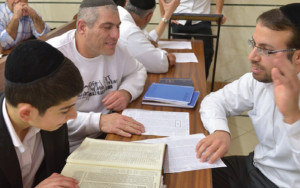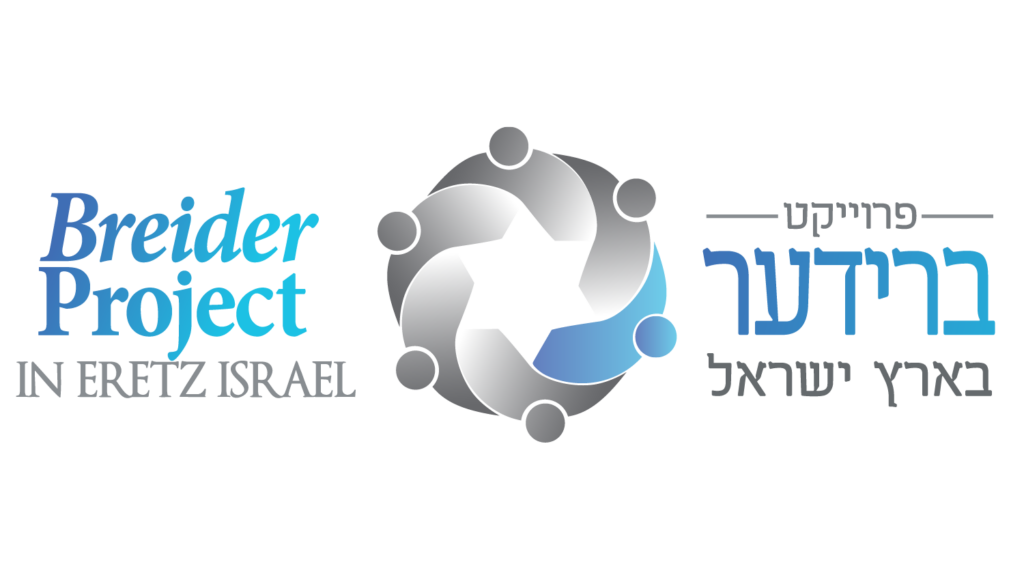Moshe Bardugo Tells His Story
Ancient Dreams
 Rabat, Morocco, 1963:
Rabat, Morocco, 1963:
Moshe recalls, “I was a twelve year old student in the Otzar HaTorah Talmud Torah in Rabat, dreaming about Eretz Yisrael. I envisioned green fields and beautiful homes, where tzaddikim sat and learned Torah. There were rumors afoot about aliyah, and I was sure that our time would come too. I clearly remember the exciting moment when my father announced, ‘We’re leaving tomorrow.’ The day that followed was a confused blur, as we rushed to complete our preparations and board the big, crowded ship that would take us to our new home, along with many other members of our kehillah. My next memory is our arrival in Eretz Yisrael. My father was the first to debark, and I watched as he lovingly kissed the soil of the Holy Land. We were overjoyed: we had returned to our ancestral homeland, the fulfillment of a two-thousand-year-old dream.
New Realities
The Jewish Agency sent us to “settle the Negev” at a new yishuv named Ofakim, somewhere between Ashkelon and Beer Sheva. My father had been a successful businessman in Rabat, but now he had nothing. He did his best to find other ways to support his eight children in our new home, but he was not very successful. As a result, at the age of twelve I went to work. I would get up every morning at 4:00 a.m., and head for the market in Beer Sheva to make some extra money for the family.
In 1967, right after the Six Day War, I was drafted into the IDF, where I served for three years in the Engineering Corps. I was not religious in the army. I stopped wearing a kippah, and I was no different than any other secular Israeli. Even so, in my heart I always remembered our beautiful way of life in Morocco, the atmosphere of Shabbat and holidays in the mellah (Jewish quarter), and the teachers at Otzar HaTorah.
After my discharge from the army, I struck out on my own. I was eager to succeed, and built up a thriving aluminum plant from scratch. I always told myself that I would yet go back to the old ways – someday.
The Road Back
1982 was a turning point. Daniel, my oldest son, was born, and I made up my mind that he would have it all – he would go back to our family’s traditions. In those years there were new yeshivot opening everywhere. I did my best to give Daniel a good education with strong values. I sent him to the best Torani school in our city, sparing no effort to help him do well in school. I was delighted to see my efforts bear fruit. He graduated eighth grade, and enrolled in a real yeshivah! I must have been the happiest man alive. I had lost my own youth in the market in Beer Sheva, but for Daniel, it would all be different.
Bumps in the Road
Unfortunately, my happiness was short-lived. Maybe it was the pressure, or being an out-of-towner, with a background and mentality worlds apart from the boys who came from Jerusalem and Bnei Brak. Whatever the reasons, there was no arguing with the facts. Just a few months later, Daniel left yeshivah. I tried to find a good alternative option for him, but it didn’t work – Daniel wasn’t interested. Our second son, and then the third, followed the same pattern. They graduated from the Torani school, went to yeshivah, and within a few months, were in the street.
A New Approach
In 2007, it was fourteen-year-old Lior’s turn. He was our youngest. As much as my wife respected the yeshivot, after our experiences with the older boys, she didn’t see any point in trying again. “Moshe, yeshivot are not for us,” she said. “We can always donate money, but we need something else for Lior.”
I wasn’t ready to give up. I reminded my wife that the system had changed since our Daniel’s time. The school now had a guidance counselor who specialized in helping match the boys with suitable yeshivot. We decided to try – at least we would know that we had done everything possible.
Lior enrolled in Acheinu in Modiin Illit. We saw from the start that they had a different approach. Lior was allowed the time he needed to gradually adjust to yeshivah life. He was expected to dress in black and white, but there was no talk of a suit until months later. The black hat only came much later, at the end of the year. The staff was in touch with us regularly, and we came to see them as part of the family. Lior made it through the first year, and started on the second; he was on his way, and we were delighted. None of our other boys had come that far.
Ups and Downs
One day at work, my phone rang. I recognized the number – it was Lior’s maggid shiur. My heart sank. Had Lior gotten in trouble? Was he still doing well? I took the call. Rav Weiss told me that the class was still in the middle of the shiur, but he simply had to call with some good news. My Lior had asked a question identical to one asked by the Rashba! They were all excited for him, and Rav Weiss wanted to share the excitement and wish me nachat.
I was deeply moved and very happy. I hung up with tears in my eyes. Daniel, who worked with me in the business, asked if I had won the lottery. “No,” I told him, “even better than that. Lior is going to be a ben Torah.”
When the crisis struck in Lior’s third year in yeshivah, we were stunned. He broke an important rule at the yeshivah, and no one understood why he had done it. Rav Berlin, the rosh yeshivah, called me, and we cried together. I was devastated, but I knew by now that whatever the administration would do was only because they truly cared about Lior. Rav Berlin didn’t decide on his own – he went to Bnei Brak, to consult with Rav Shteinman about our son.
Baruch Hashem, Rav Shteinman assured him that in Lior’s case, it was only a one-time fall. He advised Rav Berlin to allow Lior another chance to turn over a new leaf, and he did it! Lior was so impressed with his rosh yeshivah’s personal concern and willingness to forgive him, that he made a serious commitment to work hard in yeshivah gedolah.
Full Circle
In 2013, Lior got married . The wedding of the youngest child in the family is always an especially moving experience, but for me it was a exceptional simchah. Here I was, Moshe from the maabarot, who built a new life with my own two hands, at a wedding I could never have dreamed of years ago. With Hashem’s help, I found the right messengers, who knew how to reach my son and keep him in yeshivah. I am honored and excited about helping him continue learning in kollel.
At the wedding, Rav Berlin danced in the center with Lior, and tried to pull me in. I held back, saying, “He’s your son.” In the family portraits taken at the wedding, Lior looked like a prince. To me, his black hat, still the only one in the family, is nothing less than the crown on a sefer Torah.
When I look at my grandchildren, I know that there is a future ahead for them, even if their fathers are not bnei Torah. The world has changed, and the revolution is well under way. Acheinu – Yeshivah L’Tze’irim in Modiin Illit is waiting, extending a hand and serving as a bridge to those who are ready to enter the Torah world.
